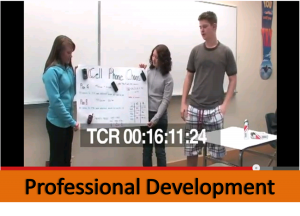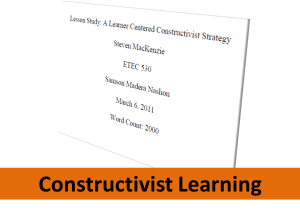In my first two courses in the MET program, I labelled my introductory postings with “Hi from the newbie”. The term “newbie” was exactly how I felt as I struggled to even vaguely grasp the “foreign” language that some of my classmates were speaking, and this was just in their introductory posts. My foray into MET was truly a Web 1.0 experience in which I felt like an information dumping receptacle. Thinking back, I remember Web 1.0 as a world of relatively static webpages in which I spent hundreds of hours wrapped up in the thrill of discovery and absorption of the world online; and in truth, MET was no different. Making sense of this new learning platform was a challenge with its vast stores of information in course work, peers postings, and subsequent research material. With such a steep learning curve, the information was flowing in but not much sense was flowing out, and this showed in my communication with my peers. In fact, at the same time as I was creating a social constructivist based Moodle course in ETEC 510, Design of Technology-Supported Learning Environments, involving metacognition, I was also studying metacognitive learning in ETEC 530 and attempting to write my own first tentative reflections. It was “do or die” time and I struggled to create a product that reflected what I was, myself, just learning; an experience that is not uncommon to most teachers in curriculum development.
Although something interesting and significant happened as I progressed through these two courses. I began to develop an understanding of the vast potential behind online learning. It was in this social and experiential learning environment that I first saw real learning potential for online professional development (PD) environments.



 Follow
Follow
Leave a Reply